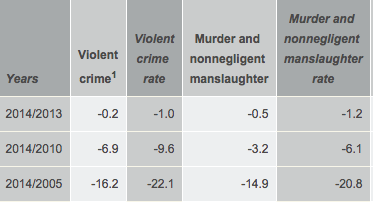CDC: Zika Virus Confirmed as a Cause of Microcephaly
CDC director Dr. Tom Frieden confirmed Wednesday that the flavivirus known as Zika is a cause of microcephaly and other severe fetal brain defects.
The confirmation is based on an evaluation of available data for potential teratogenic effects. Using both Shepard criteria and Bradford Hill criteria, researchers proved prenatal Zika virus infection has a causal relationship with microcephaly and other serious brain anomalies.
The first set of seven criteria used in the assessment were developed by Dr. Thomas Shepard to assess an agent’s teratogenicity — the ability to cause birth defects. The criteria of proof are:
1. Proven exposure to agent at critical time(s) in prenatal development
2. Consistent findings by two or more epidemiologic studies of high quality
a. control of confounding factors
b. sufficient numbers
c. exclusion of positive and negative bias factors
d. prospective studies, if possible, and
e. relative risk of six or more3. Careful delineation of the clinical cases. A specific defect or syndrome, if present, is very helpful.
4. Rare environmental exposure associated with rare defect. Probably three or more cases.
5. Teratogenicity in experimental animals important but not essential.
6. The association should make biological sense.
7. Proof in an experimental system that the agent acts in an unaltered state. Important for prevention.
______
Note:
Items 1~3 or 1, 3, and 4 are essential criteria.
Items 5~7 are helpful but not essential.
Shepard criteria summary:
1. The microcephaly and other brain defects observed in infants and fetuses were consistent with maternal Zika infection during first and second trimester of pregnancy. Mothers exhibited symptoms, and/or had infections confirmed by labs, and/or had traveled to areas where Zika was endemic. This criterion was met.
2. Data documenting the location of Zika virus infections and the subsequent incidence of microcephaly in those areas was supported by two epidemiologic studies. But as sample sizes were too small and controls were lacking, this criterion has not yet been met.
3. Cases manifesting with a very specific defect (an atypical microcephaly) or syndrome (a narrow range of neurological defects in tandem with microcephaly) satisfied this third criterion. With Zika infection, microcephalic cases displayed adequate bone tissue and scalp skin production, but ‘collapsed’ due to the disrupted development of fetal brain tissue. This is not common in other microcephalies.
4. An adequate number of cases fulfilled the criteria of rare exposure and rare defect — one example cited was that of a pregnant woman who traveled for a week to areas where Zika was not endemic. She tested positive for Zika during her second trimester, and the fetus displayed brain defects associated with Zika after the infection.
5. Studies for this criteria — teratogenicity in animal models — are still under way. This criterion is not yet satisfied.
6. This criterion is met as the causal relationship makes biologic sense.
7. This criterion does not apply to infectious agents.
The essential Shepard criteria have been met for proof of teratogenicity.
Bradford Hill criteria summary
Of the nine criterion — the strength of association, consistency, specificity, temporality, biologic gradient, plausibility, coherence, experiment (on animal models), and analogy — only two criterion are not applicable or not available. The remaining seven criterion were met in much the same manner as the Shepard criteria 1, 3, 4 were met.
What’s next
A spectrum of additional fetal abnormalities has not yet been fully identified in association with Zika infection. This will become clear once some pregnancies being monitored reach term.
We don’t yet know if Zika virus affects adult neurological tissues; some cases of Guillain-Barre Syndrome (GBS) have been reported in areas where Zika is endemic. GBS has occurred in patients after viral infections where neurological tissues have been affected; it would make biologic sense for there to be a causal relationship between Zika and GBS. However, GBS has occurred in patients long after an initial infection, making it difficult to see obvious relationships without further screening and testing.
A Zika vaccine may be some time off; of the flavivirus family, only yellow fever and a couple of encephalitis viruses have vaccines while others like West Nile and dengue do not.
Mosquito control varies widely from state to state, let alone by county or municipality. We do not know if it is adequate to ensure Zika’s spread via Aedes aegypti and Aedes albopictus mosquito species is limited. U.S. experience with the spread of West Nile Virus may be informative.
Funding for additional research, education, training, vaccine development and mosquito control, as well as funding increases for birth control are much needed, But the GOP-led Congress will likely avoid this issue during the remaining days it is in session this election year.
In the meantime, if you’re around mosquitoes in warmer areas of the U.S., are pregnant, plan to be pregnant, or might get someone pregnant, check the CDC’s guidelines on Zika.

![[image (mod): LeAnn E. Crowe via Flickr]](https://www.emptywheel.net/wp-content/uploads/2016/03/FlintWaterCrisis_logo-201x300.jpg)

